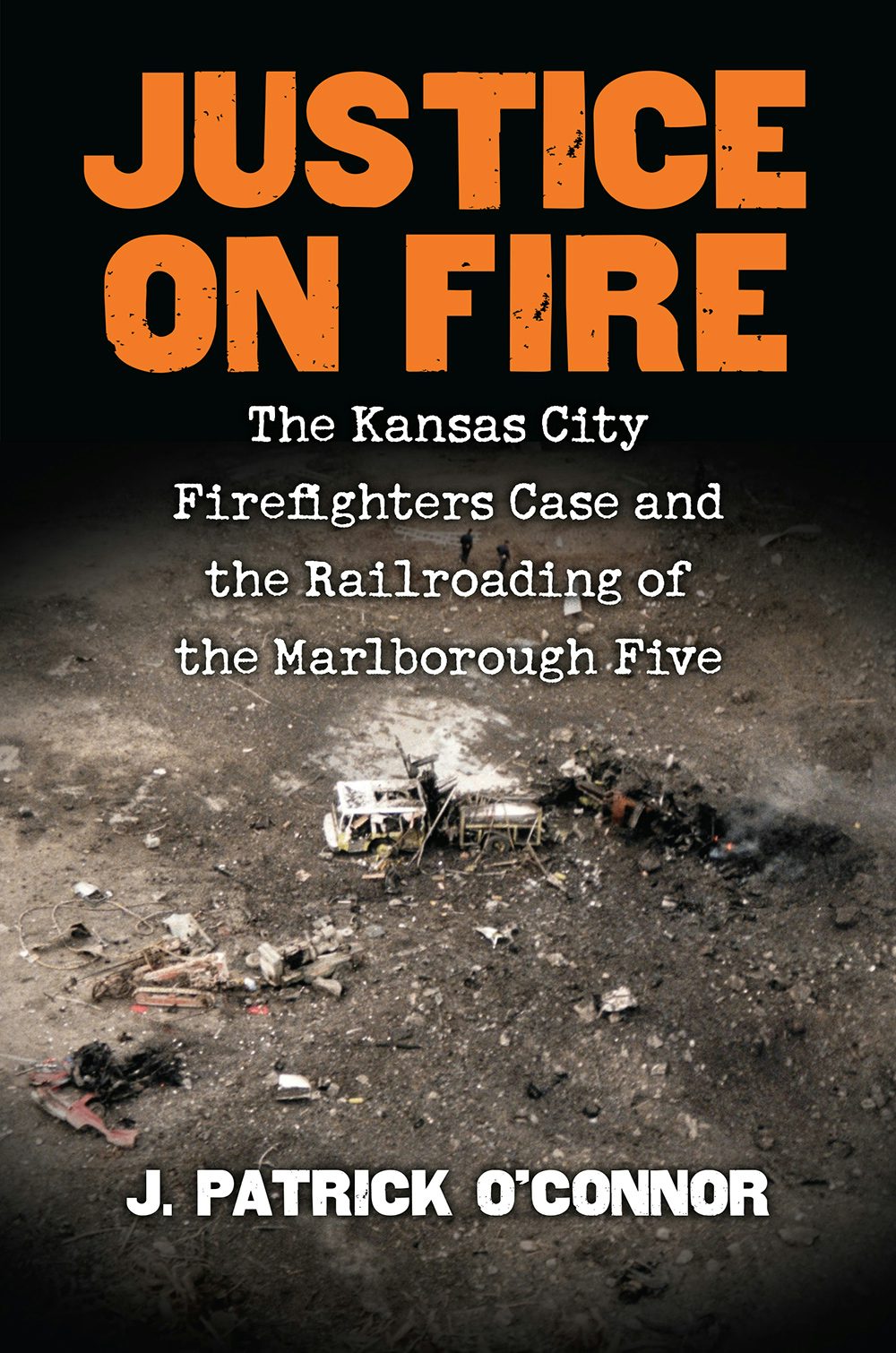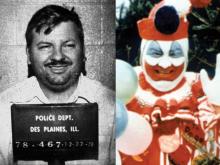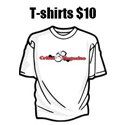Louis Fratto
"Cockeyed Louie" Fratto stared down three U.S. Senate committees -- Kefauver, McClellan, and Capehart -- by taking "the Fifth." His 30-year reign as the mob's lead man in Iowa netted him numerous civic honors, but not one day in jail.
by Allan May
According to Pulitzer Prize winning reporter Clark R. Mollenhoff, Louis Fratto, better known as Lew Farrell, "was not a master criminal. He was no more than a second or third operator from the lower ranks of the Capone mob in Chicago." This may have been Mollenhoff's opinion when the Capone gunman arrived in Des Moines, Iowa, in September 1939, but things would change.
As a cub reporter for the Des Moines Register during the early 1940s, Mollenhoff witnessed, "the tentacles of Lew Farrell reach into the Des Moines Police Department to promote his friends; into the Sheriff's Office for a gun permit; into the Prosecutor's Office to kill a criminal indictment; into the local courts to manipulate decisions on evidence; and into the state political arena."
Luigi Thomaso Giuseppe Fratto was born in Chicago on July 17, 1907. In Steven Fox's Blood and Power, the author discusses Fratto's nickname Lew Farrell, a name Fratto used most of his life, which allowed him an almost dual identity. Fox states, "As young boxers Vincent DeMora, Girolamo Santuccio, Joseph Aiuppa, and Louis Fratto took the ring names of Jack McGurn, Bobby Doyle, Joey O'Brien, and Lew Farrell, and when they graduated from boxing they kept the names."
Fratto grew up on the near West Side of Chicago with brothers Frank and Rudolph. The brothers were cousins of "Milwaukee Phil" Alderisio and were later related by marriage to William "Willie Potatoes" Daddano and Albert "Obie" Frobotta. As a young man, Fratto became acquainted with Charles "Cherry Nose" Gioe and would ride his coattails into the Chicago underworld.
Fratto's criminal career began in 1926 when he was charged with stealing a $14 coat. In 1932, he was identified as a member of the Fiore mob by Chicago Police Sergeant William Drury, who later would be murdered prior to his appearance before the Kefauver Committee in 1950. The Fiore mob, at the time led by Ted Virgilio, was suspected of muscling in on speakeasies and cabarets demanding 50 percent of the profits. The owner, who operated the place illegally, seldom complained out of fear of being closed, or worse, murdered.
In April 1933 Fratto was listed as secretary and treasurer of the Wardrobe Check, Washroom Attendants & Doorman's union. He and Virgilio were arrested that month for questioning in an $800,000 mail robbery. Later that year in December, Fratto was being sought in another mail robbery; this time a $250,000 heist pulled in the Loop. Also picked up for questioning in the robbery was John J. "Boss" McLaughlin, a onetime state legislator and political fixer for the North Side Gang. McLaughlin was one of the first suspects arrested and questioned about the murder of Chicago Tribune reporter Jake Lingle in 1931.
Mollenhoff offers this description of Fratto, "… a pleasant fellow with a perpetual smile, a constant line of flattery, and an alert and observing eye. The slight deviation in his eye alignment that resulted in the nickname "Cockeyed Louey" made him just a bit self-conscious about looking directly at you; but he managed to scrutinize you indirectly just as well."
Perhaps due to his longtime friendship with Charles Gioe, Fratto relocated from Chicago to Des Moines in 1936. Mollenhoff claims Fratto replaced Gioe, "who for unexplained reasons was giving up his role as the Capone mob's ambassador to Iowa." Fratto quickly became acquainted with tavern owners Alphonse "Babe" Basignano and Johnnie Critelli. Basignano ran a restaurant on Sixth Avenue that provided illegal liquor and slot machines for patrons. Critelli ran an after-hours joint on Harding Road that also offered liquor and gambling.
Basignano was once jailed for "manhandling" a municipal court judge who he felt had treated him unfairly. His brazenness resulted in a close scrutiny by law officials and he was arrested and jailed on illegal liquor charges. Critelli, on the other hand, considered himself above the law, which prohibited the sale of liquor in places where beer was sold in Des Moines. He was convinced that the citizens of Des Moines would support the illegal sale of liquor and that they didn't care if people like himself and Basignano operated in defiance of the law. Critelli was so sure of himself that he ran for safety commissioner, a post responsible for appointing the chief of police, the chief of detectives, the head of the vice squad, and all of the promotions within those units. His campaign slogan was "Be Honest with Yourself. Vote for Johnnie Critelli."
After spending thousands of dollars on billboard advertisements and promotions, Critelli collected a lowly 800 votes on Election Day.
In addition to Basingnano's and Critelli's operations, Pete and Gladys Randa ran the Mainliner nightclub located just outside the city, and Dave Fidler operated Club 100 where, besides liquor and gambling, he provided top-name floor shows. In 1942, Fratto tried to muscle in on the Mainliner, demanding 25 percent of the profits. One night he went to the nightclub and confronted Pete Randa with a gun. Randa's brother took the gun away from Fratto.
Fratto had a charismatic personality and made friends with politicians, law enforcement people, judges, and newspapermen. He was also active in the community and involved in several civic projects. The Des Moines Junior Chamber of Commerce granted him an honorary lifetime membership as well as a plaque for his outstanding service to the community. In addition, Fratto worked as a civilian recruiter for the Navy and helped enlist over 75 recruits; he headed a War Bond Drive that sold over $1 million worth of war bonds; and he received an award for his work on behalf of the Italian-American community in Des Moines.
In the mid-1940s, Fratto used his civic activities to help him obtain a beer distributorship in the area. Already a wholesaler for the Manhattan Brewing Company, Fratto was seeking a federal wholesale permit to distribute Canadian Ace beer in Iowa. Agents from the Alcohol Tax Unit investigated Fratto and advised that he was "not a proper man for a federal beer permit." During the hearing, Fratto, who used the name Lew Farrell in Des Moines, denied he was the Luigi Fratto with a record of 21 arrests in Chicago. This lie, combined with the attempted shakedown of the Mainliner, caused the agency to decline his application for the distributorship.
Fratto, with his influential Chicago ties, was then able to get to the deputy commissioner of Internal Revenue in Washington to obtain the beer permit, which was granted on April 16, 1946. The Alcohol Tax Unit agents were amazed at Fratto's connections and at the same time were frustrated at being unable to block the permit.
This incident would later fuel the interest of Kefauver Committee members during hearings held in 1951. Fratto was requested to appear in Washington on March 24, 1951 for questioning. His appearance before the committee and the exposure he received would be something he would never be able to live down.
Fratto was described as a "quiet operator" in the years after he received the beer permit. He came under suspicion a few times involving gambling. He worked out a deal for a joint gambling venture with his old nemesis, the Randas, at the Mainliner. On April 26, 1948, law officials raided the Sports Arcade on Grand Avenue, arrested two employees, and confiscated gambling equipment. Two of Fratto's associates in the club, Hymie Wiseman and Al Cramm were fined. Judge C. Edwin Moore, who had served as a character witness for Fratto just months previous to the raid, dismissed charges against Fratto. Moore later became a Chief Justice of the Iowa Supreme Court.
In addition to the Sports Arcade, Fratto was a partner in the Downtown Businessmen's Club and was involved in the race wire service in Iowa.
Fratto's name made the headlines again during the summer of 1954. On Aug. 18, Charles Gioe – Fratto's mentor, friend, and one time boss – was murdered in Chicago. Gioe had been struggling to gain back the influence he once enjoyed before going to prison in 1944 for conspiring to extort more than $1 million from the motion picture industry. On the night of his murder, Gioe dined with Fratto associate Hymie Wiseman and another man. Later, as Gioe and Wiseman got into a friend's car, an automobile pulled along side and while one gunman blasted away at Gioe, another shot at Wiseman. Gioe was killed instantly, but Wiseman escaped to safety and was questioned by police a couple days later.
At the same time Wiseman was being questioned, gunmen struck again killing ex-Capone bodyguard Frank "Diamond" Maritote. Once an associate of Gioe, Maritote was convicted and jailed on the same extortion charges that sent Paul "the Waiter" Ricca, Louis "Little New York" Campagna, Philip D'Andrea, and Johnny Roselli to prison. When police questioned Maritote about the murder he told them Gioe was trying to muscle in on some building trade unions. Gioe had recently been asked to intercede in some labor problems, which brought him into direct conflict with Joey Glimco. Police theorized this confrontation resulted in the deaths of both Gioe and Maritote. Glimco was arrested and brought in for questioning, but no one was ever indicted for the murders of either man.
In Des Moines police sought Fratto for questioning in regards to Gioe's murder. Authorities believed no one was closer to Gioe than Fratto. A month after Gioe's murder Fratto testified before the Capehart Committee, which was investigating abuses and corruption in the home-repair industry. When he left the stand Fratto was arrested and taken in for questioning in the Gioe killing. He was released after police were convinced he could shed no light on the matter. Meanwhile, U.S. Sen. Capehart, a Republican from Indiana and chairman of the Senate Banking Committee, was determined to prosecute Fratto, but could not gather enough evidence.
During the Kefauver hearings, Fratto had been questioned about help the Gargotta brothers of Kansas City received from him and members of the Des Moines police force that were close to him.
In August 1958 Fratto was called before yet another congressional committee. This time it was the McClellan Committee, which was the abbreviated name for the Senate Select Committee on Improper Activities in the Labor or Management Field. Fratto was subpoenaed to appear with his personal financial records, which he brought into the courtroom in an attaché case. He refused to let committee members see the information and he was immediately threatened with a contempt of Congress citation.
"My record doesn't show what's in that grip you brought," McClellan said. I order you to open that brief case and expose them."
"I decline," Fratto answered.
"I'm going to say very frankly I'm giving you warning," said McClellan. "If you continue to refuse, I'm going to recommend that the Senate cite you for contempt."
Fratto again declined.
Fratto returned the following day and stated that the records he possessed represented all of his financial transactions since 1948. Fratto then invoked his Fifth Amendment rights in refusing to hand them over to the committee. He also refused to answer questions about his handling of Manhattan Brewing Company and Canadian Ace beverage operations.
Fratto was described by the committee as a "former beer distributor and gambling figure," now identified as a "labor relations advisor" who was very influential with the Teamsters Union. Fratto irritated committee members by "taking the Fifth" or remaining mute to questions about his relationship with Jimmy Hoffa or if he had plans with Hoffa aide Robert B. "Barney" Baker to establish a firm to wholesale liquor to Iowa state liquor stores or if he had made contributions to Iowa Gov. Herschel Loveless.
U.S. Sen. Carl T. Curtis of Nebraska began asking Fratto questions about his knowledge of Harold Gibbons and Jake More (Baker's father-in-law). When Fratto took the Fifth again Curtis inquired if it would incriminate him to testify about his relationship with More? Fratto responded that the committee was operating on information about him that it received from "space men."
McClellan reminded Fratto that if his operations were legal he should have no guilt in opening up the brief case. Fratto shot back that he had once gotten himself in trouble with an earlier congressional committee by voluntarily providing them with his records.
"What committee was that?" demanded Curtis.
"That fellow with the coon hat," snapped Fratto.
McClellan gave a final warning to Fratto that he was looking at a contempt-of-the-Senate charge. Fratto was then permitted to leave the witness seat, but told to remain available for questioning.
The following month the committee questioned Jimmy Hoffa in Washington about Fratto. Hoffa admitted that he knew Fratto and that he had negotiated a few union contracts with him, but denied they were friends. The committee questioned Hoffa extensively about the Teamsters' efforts to move in on the Midwest Burlap Bag Co. of Des Moines to take members away from the Textile Workers Union. The committee had earlier accused Fratto of serving as an advisor to Marvin Pomerantz in the case. While Fratto took the Fifth to the questions put before him then, records provided by the government showed telephone calls made between Fratto, Richard Kavner, an organizer for the Teamsters, Teamster officials, and to the Midwest Burlap Bag firm.
Walter Sheridan, one of the McClellan committee's outstanding investigators, introduced an affidavit from Pomerantz that stated Fratto played an important role in the negotiations. Hoffa still claimed that Fratto was neither working for him nor the Teamsters' local that was trying to steal members.
In February 1959, the committee heard testimony again in Washington from Lionel Rowley, a business agent for Local 106 of the Carpenter's Union. Rowley had been elected to the union's annual convention as an anti-corruption candidate. When he arrived at the convention in St. Louis he was refused admittance. Armed men who threatened to send him back to Des Moines in a "wooden overcoat" met him. After they stole notes from his brief case outlining his corruption charges, Fratto who, Rowley claimed, told him to keep his mouth shut and to "stop writing things down" confronted him.
In late June 1967 Fratto was indicted with three men from Chicago in a plot to bilk an Indiana businessman out of $17,500. The Chicago Sun Times said the indictment of Fratto "represented a successful start for a newly launched federal crackdown on 'satellite" underworld operators throughout the Midwest."
Fratto would never make it to trial. He was diagnosed with cancer during the mid-1960s. On Oct. 10, 1967 he entered the Cancer Research Hospital at the University of Wisconsin to receive treatment. On Nov. 24 he died at the age of 60.









